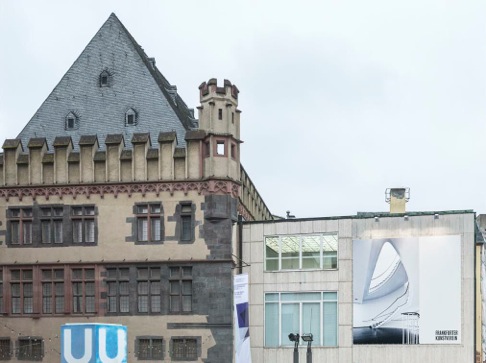Was heißt Toleranz? Vom Umgang mit kultureller und religiöser Differenz
27.05.2010
*Feridun Zaimoglu in conversation with Prof. Rainer Forst, Moderation: Peter Siller*
Cultural and religious pluralism is on the rise in modern societies. But how should they deal with difference? It is associated, on the one hand, with hopes for a new culture of respect, but also, on the other, with the fear of new conflicts.
Although Frankfurt lives off the cosmopolitanism and diversity of its citizens, at the same time the construction of a mosque, for example, creates a major stir. And although one finds genuine cooperation in many places, in others it is more a matter of coexistence. At the centre of all this is the question of what we actually understand by tolerance. Recognition? Conditional acceptance? Or in the end mere accommodation?
With the philosopher and political scientist Prof. Rainer Forst, the second Frankfurt Encounter will feature one of the leading international experts on toleration. It gives us great pleasure to welcome in the novelist Feridun Zaimoglu (Leyla, Hinterland) one of the most outstanding authors among the younger generation of German writers and one who has dealt with cultural and religious identities in many of his works. Their contrasting starting points should ensure a lively and informative conversation. In addition Feridun Zaimoglu will read from some of his literary works.
*Feridun Zaimoglu* was born in 1964 in Bolu in Anatolia and has lived for more than thirty years Germany. He studied art and medicine in Kiel, where he has gone on to work as an author, scriptwriter, and journalist. He has been a columnist for the Zeit-Magazin and writes for Die Welt, the Frankfurter Rundschau, Die Zeit and the Frankfurter Allgemeine Zeitung. In 2002 he was awarded the Friedrich Hebbel Prize, in 2003 the Jury Prize at the Bachmann competition in Klagenfurt, and in 2007 the Carl Amery Award. In the same year he assumed the Tubingen Poetry Lectureship together with Ilija Trojanow. In 2010 Feridun Zaimoglu was awarded the Jakob Wassermann Literature Prize in recognition of his work and for his role as a mediator in the dialogue between Germans and Turks.
*Rainer Forst* is Professor of Political Theory and Philosophy at the Goethe University Frankfurt am Main. Following studies in philosophy, political science, and American studies in Frankfurt am Main, New York, and at Harvard University, he worked as a research associate on a research project on legal theory in Frankfurt. He received his doctorate in 1993 (with Jürgen Habermas) with a dissertation on theories of political and social justice (Kontexte der Gerechtigkeit: Politische Philosophie jenseits von Liberalismus und Kommunitarismus, Suhrkamp 1994; English translation: Contexts of Justice, University of California Press 2002) and habilitated in philosophy with his work Toleranz im Konflikt: Geschichte, Gehalt und Gegenwart eines umstrittenen Begriffs (Suhrkamp 2003). Since November 2007 he has been Speaker (jointly with Prof. Klaus Günther) of the newly-established Cluster of Excellence ‘The Formation of Normative Orders’. In the same year Rainer Forst published his book Das Recht auf Rechtfertigung: Elemente einer konstruktivistischen Theorie der Gerechtigkeit. His most recent work, Kritik der Rechtfertigungsverhältnisse: Perspektiven einer kritischen Theorie der Politik, will appear in 2010.
*Peter Siller* (* 1970) is Scientific Manager of the Cluster of Excellence `The Formation of Normative Orders’ at the Goethe University Frankfurt am Main. Formerly he was the director of the domestic divisions of the Heinrich Böll Foundation and a member of the planning staff at the German Foreign Ministry. He studied law and philosophy. In addition he is founder and managing editor of the journal `polar’ which appears twice yearly in the Campus Verlag (www.polar-zeitschrift.de). He numerous publications on political philosophy and practice include `Rechtsphilosophische Kontroversen der Gegenwart’ (1999), `Politik als Inszenierung’ (2000), `Zukunft der Programmpartei’ (2002), `Arbeit der Zukunft’ (2006), `Politik der Gerechtigkeit’ (2009).
A series of events of the Cluster of Excellence `The Formation of Normative Orders’ in collaboration with the Frankfurter Kunstverein.

